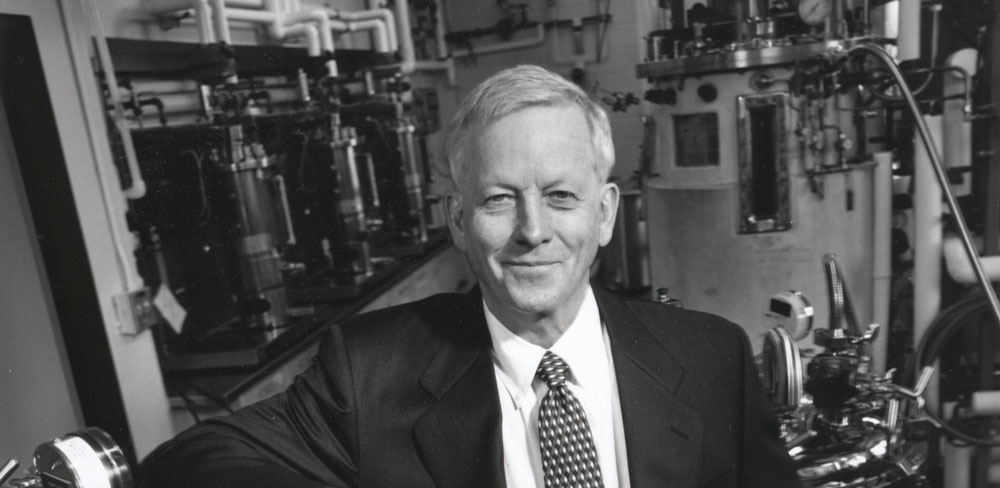

Photo: Jim Harrison
William Rutter
Technology, the Economy & Employment
2nd Heinz Awards - 1995
Dr. William Rutter received the 2nd Heinz Award for Technology, the Economy and Employment for his role in helping to create the biotechnology industry and for his interest in shaping that industry to serve society.
A first-rate scientist and academic leader, Dr. Rutter was among the first to recognize the potential of biomedical sciences to produce marketable goods and services. The success of the company he created, Chiron Corporation, helped to spur the rapid emergence of the biotech industry, as did his earlier crafting of the University of California at San Francisco’s program in biological and genetic research. Today, Chiron remains one of the world’s few biopharmaceutical companies making important contributions to health while succeeding commercially. As a researcher, educator and corporate leader, Dr. Rutter has nurtured an important new science and demonstrated both its profitability and its medical utility.
In 1968, Dr. Rutter took the reins of an undistinguished biochemistry program at the University of California at San Francisco and set about transforming it. Spurred by his successful recruitment of leading molecular biologists, UCSF’s lab made important early contributions to biotechnology, including development of recombinant cloning techniques and the first cloning of insulin and growth hormone genes. Under Dr. Rutter’s leadership, UCSF became recognized as one of the most vigorous and innovative places carrying out fundamental biological and genetic research.
But Dr. Rutter’s passion for science extended beyond discovery. He believed that the science of biotechnology he was then helping to pioneer had enormous potential applications to the field of medicine. He also sensed that the existing “technology transfer” structure between universities and the pharmaceutical industry was ill equipped to accommodate a boom in the biological sciences. Therefore, to explore the business applications of his research, he joined in 1981 with two University of California colleagues to found Chiron Corporation.
Known for its programs in infectious disease, Chiron approached its research in a novel way by seeking to coordinate the development of vaccines, diagnostics, and innovative treatment strategies as part of a coherent effort to combat disease. Among the fruits of this approach were the first genetically engineered vaccine (for hepatitis B), the discovery of hepatitis C, and diagnostic tests used worldwide to ensure that blood or blood products are not contaminated with hepatitis B and C or HIV. The company also produces biological products to treat multiple sclerosis and Lou Gehrig’s disease, as well as products designed to boost the immunological defense mechanisms of cancer patients. The company has also become active in the study of gene therapy, an area Dr. Rutter sees as an especially promising avenue for the treatment of cancer and infectious diseases.
Dr. Rutter is understandably proud of his formation of a successful, science-driven company. But it is significant that he is even more proud of the contribution his company has made to advancing the cause of human health, and the achievements of his colleagues and students in illuminating fundamental biological mechanisms and solutions to human disease. He is devoted to the principle that scientific innovation is the key to solving many of our most challenging and urgent problems.
Note: This profile was written at the time of the awards’ presentation.
